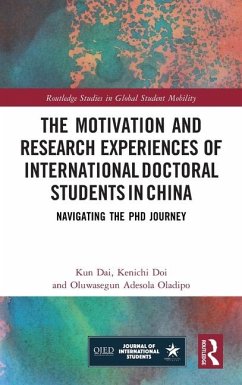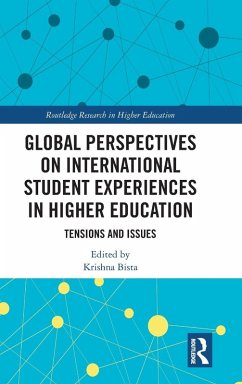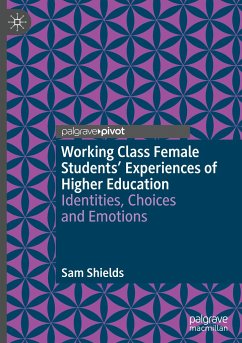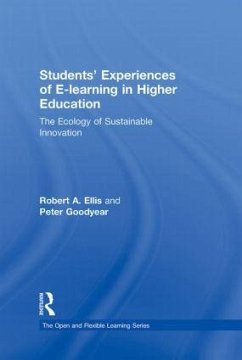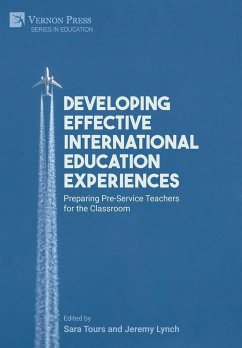
Developing Effective International Education Experiences
Preparing Pre-Service Teachers for the Classroom
Herausgeber: Tours, Sara; Lynch, Jeremy M
Versandkostenfrei!
Versandfertig in über 4 Wochen
96,99 €
inkl. MwSt.

PAYBACK Punkte
48 °P sammeln!
Globally, and within the United States, we continue to progress toward a more diverse and inclusive culture. This fact is perhaps reflected nowhere better than in the public school system in the United States, where, by 2029 (NCES, 2020), non-white students will outnumber white students in classrooms. The challenges that the current system of education confronts in ensuring equitable access and equal achievement are also well-documented (Darling-Hammond, 2015). A key component in the re-shaping and development of a more equitable and inclusive system are the pre-service teachers enrolled in ou...
Globally, and within the United States, we continue to progress toward a more diverse and inclusive culture. This fact is perhaps reflected nowhere better than in the public school system in the United States, where, by 2029 (NCES, 2020), non-white students will outnumber white students in classrooms. The challenges that the current system of education confronts in ensuring equitable access and equal achievement are also well-documented (Darling-Hammond, 2015). A key component in the re-shaping and development of a more equitable and inclusive system are the pre-service teachers enrolled in our college and university teacher preparation programs across the country. As we prepare for the diverse classrooms of the future, we need to prepare the teachers of the future to not only be able to teach all students but to also have the cultural competencies to ensure the same access and opportunities are provided to all students. It has been well documented (Cunningham, 2015; Lupi & Turner, 2013) that international education experiences, or international field experiences, have a positive effect on both the professional development and cultural competencies of pre-service teachers. Across a wide range of performance outcomes, pre-service teachers with international field experiences are better equipped to enter the field (DeVillar & Jiang, 2012) and may even persist longer in the profession (Egeland, 2016). However, not all international experiences provide the same positive outcomes. In this book, we will explore the importance of developing culturally competent educators in the United States education system, the research that supports the benefits of international education experiences, and how to develop effective international education experiences that will prepare pre-service teachers for the classrooms of the next decade and beyond.





